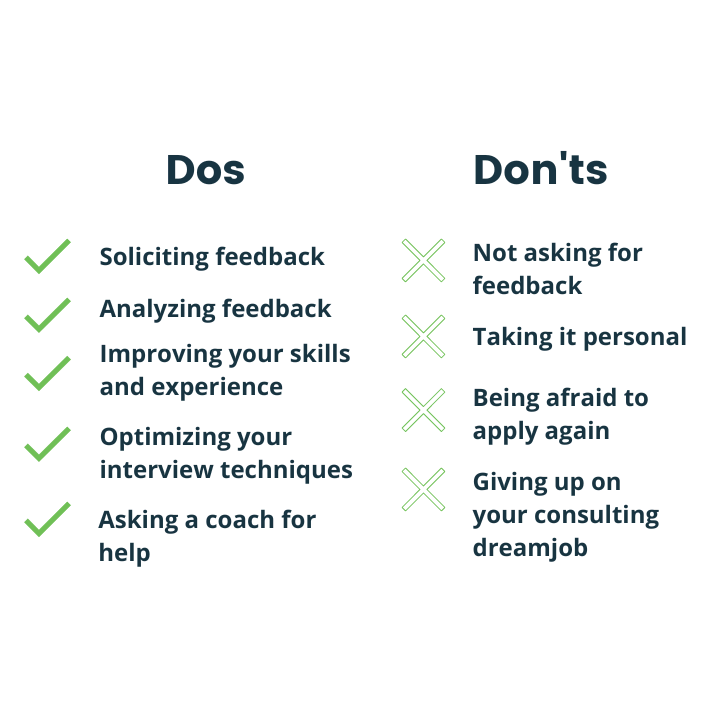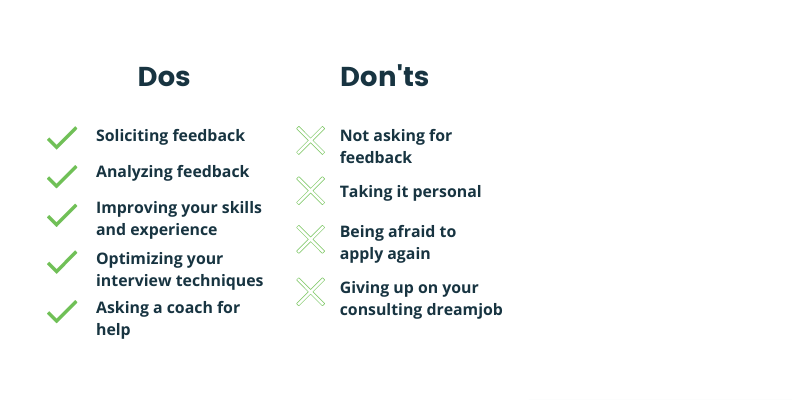In the highly competitive world of consulting, the path to securing a role often entails facing a multitude of rejections. It is vital to understand that this is not a reflection of your value or competence but rather an omnipresent component of application processes in the consulting industry. The primary goal of this article is to highlight the importance of resilience throughout your entire application processes. The adversities you encounter can fortify your resilience, a crucial asset that will empower you not only in securing a job but also throughout your professional life.
Consulting companies are demanding in their recruiting, leading to a high prevalence of rejection. However, this should not discourage candidates. Rather, it is essential to understand the diverse reasons behind such decisions, which can range from a mistake in your resume to mismatched skillsets to company-specific factors that are beyond a candidate's control. This knowledge helps in maintaining perspective and eliminating self-doubt when rejections occur.
While rejection may be a common occurrence, its emotional impact can be significant. It is important to acknowledge these feelings, employ coping strategies, and move forward in a productive way. Every setback presents an opportunity for learning and growth, and rejection is no exception.
Through this article, Hagen will provide guidance on transforming rejection into a catalyst for self-improvement, restructuring your application approach, and enhancing your resilience. Ultimately, rejection is not an end but a stepping stone towards a successful career in consulting.












